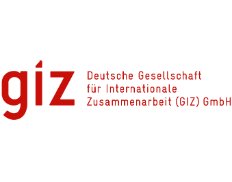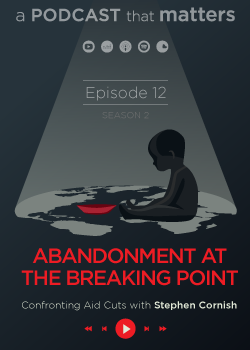Print

Youth Development through Football (YDF)
Details
Locations:South Africa
Start Date:Jan 1, 2007
End Date:Dec 31, 2013
Sectors: Inst. Devt. & Cap. building, Youth
Categories:Consulting services
Funding Agencies:
Date posted:Jul 17, 2013
Description
Youth development scores a goal.
Client: German Federal Ministry for Economic Cooperation and Development (BMZ).
Political executing agency: Department of Sport and Recreation South Africa (SRSA).
Partner organisations: Governmental and non-governmental organisations.
Scenario
Girls and boys from disadvantaged communities face complex problems in South Africa. With many families living below the poverty thresh- old, they often come from difficult social back- grounds. Owing to poor education, many youths lack skills, making it difficult for them to find employment. They are exposed to health risks, alcohol and drug abuse. Girls and young women in particular face violence and crime, and substantial numbers are discriminated against and excluded from social life. This is where Youth Development through Football (YDF) comes in. Sport in general — and football in particular — is increasingly being considered a suitable tool for youth development. Not only does football have the power to unite people and cultures all over the world, but as a team sport it promotes fairness and tolerance, leapfrogs gender boundaries and fosters mutual understanding, thereby contributing to the positive development of personality and character. The enthusiasm of the youth for football also provides a perfect opportunity to combine the game with educational measures.
Project
YDF was initiated in 2007 as a legacy of the 2006 Football World CupTM in Germany. It formed an important part of South African– German cooperation in the build-up to the FIFA World Cup 2010TM. The project, which is being implemented by the Deutsche Gesellschaft für Internationale Zusammenarbeit (GIZ) GmbH on behalf of the German Federal Ministry for Economic Cooperation and Development (BMZ), was co-financed by the European Union until the end of 2012. YDF’s primary objective is to establish and support youth-development initiatives that combine football training with non- formal education. YDF targets disadvantaged young people aged between 12 and 25.
The project cooperates with governmental and non-governmental institutions that already use football for youth development, and strengthens their capacities further. It also works closely together with schools and sports coordinators and with the private sector. Examples of such collaboration are the public-private partnership with VW South Africa, which has been completed successfully, and the ongoing cooperation with Nike. YDF develops and improves methods and approaches for teaching life skills, bringing about positive behavioural changes, as well as involving and integrating socially disadvantaged youths in their communities through football. The YDF Toolkit consists of a basic ‘Manual for Coaches’ and five short modules on HIV and AIDS Prevention, Violence Prevention, Gender Awareness, Disability Inclusion, and Environmental Awareness, respectively. All the manuals illustrate how football exercises can be used to acquire life skills and support the coach, teacher or social worker in his or her function as a role model.
YDF trains young coaches to spread the project idea in all nine South African provinces. It uses sporting events that emphasise the promotion of the youth to explain the approach, and furthers networks that focus on social change through sport, such as NIKE’s Sport for Social Change Network (SSCN). The project’s progress and success is regularly monitored by the University of Johannesburg. The results serve to improve the approach continuously.
The project was implemented in South Africa and nine other African countries between 2007 and 2012. In June 2012, YDF entered into a period of consolidation to ensure the sustainability of the approach and strengthen its quality. For this purpose, YDF cooperates closely with the Department of Sport and Recreation South Africa (SRSA) and the South African Football Association (SAFA).
Impact
Together with the South African Department of Sport and Recreation (SRSA), YDF has created enduring structures. The project is implemented in all South African provinces and has been integrated into SRSA’s Mass Participation Programme. YDF methods are being used by non-governmental organisations in Botswana, Ghana, Kenya, Lesotho, Mozambique, Namibia, Rwanda, Swaziland and Zambia. In 2011, the United Nations Educational, Scientific and Cultural Organisation (UNESCO) awarded the YDF Toolkit its global patronage. The Toolkit is currently undergoing an accreditation process and will subsequently be recognised as official education and training material by the relevant institutions in South Africa.
To date, more than 62,000 young people in South Africa and a further 55,000 in nine other African countries have participated in the project. Almost 40 percent of them are girls, and nearly a third lives in rural areas. Nearly 40 percent of the young people reached by YDF display a significant decrease in antisocial behaviour in terms of demonstrating less violent, unethical and discriminatory behaviour. Some 75 per cent have increased their self-confidence, and more than 80 per cent see themselves as role models. In their communities, these young people function as important disseminators of information and as messengers for the YDF project.
YDF has trained 162 instructors who, in turn, train coaches on the YDF Toolkit. 1,565 coaches from 375 organisations have been trained to use football as a tool for youth development and social change since 2010. The project has elicited much publicity, and journalists from all over the world have come to see YDF in action and report back to their home countries. In addition, it has attracted the interest of a fair number of politicians and international organisations, in particular the United Nations Office for Sport for Peace and Development (UNOSDP) and UNESCO.
